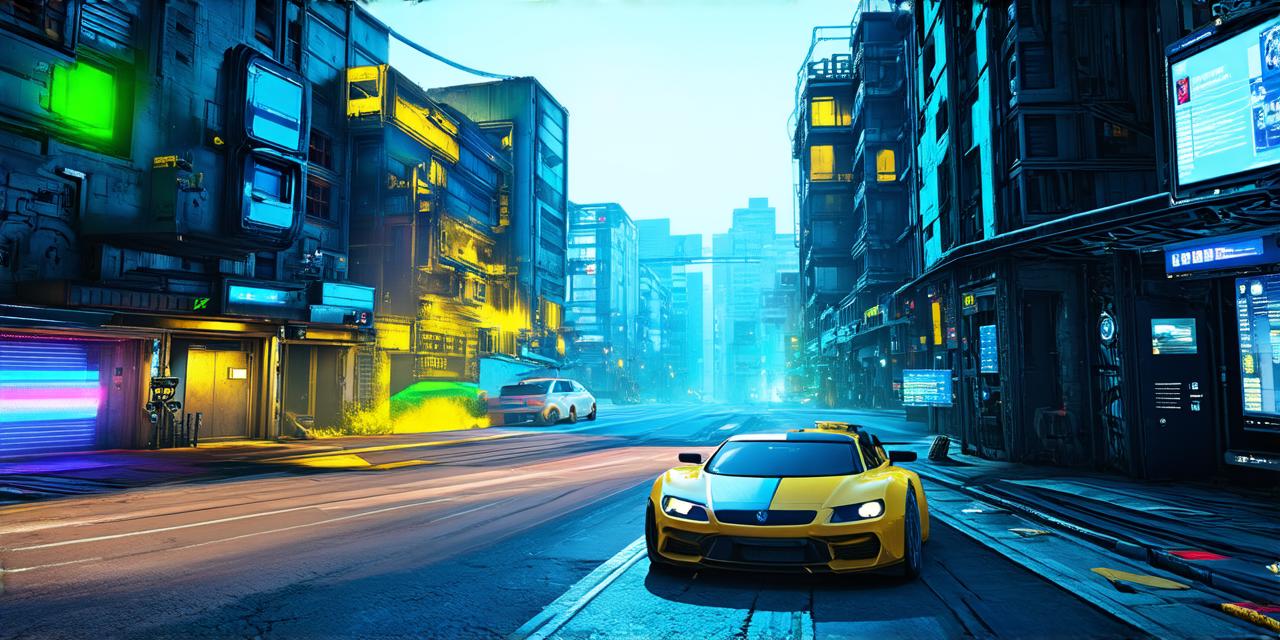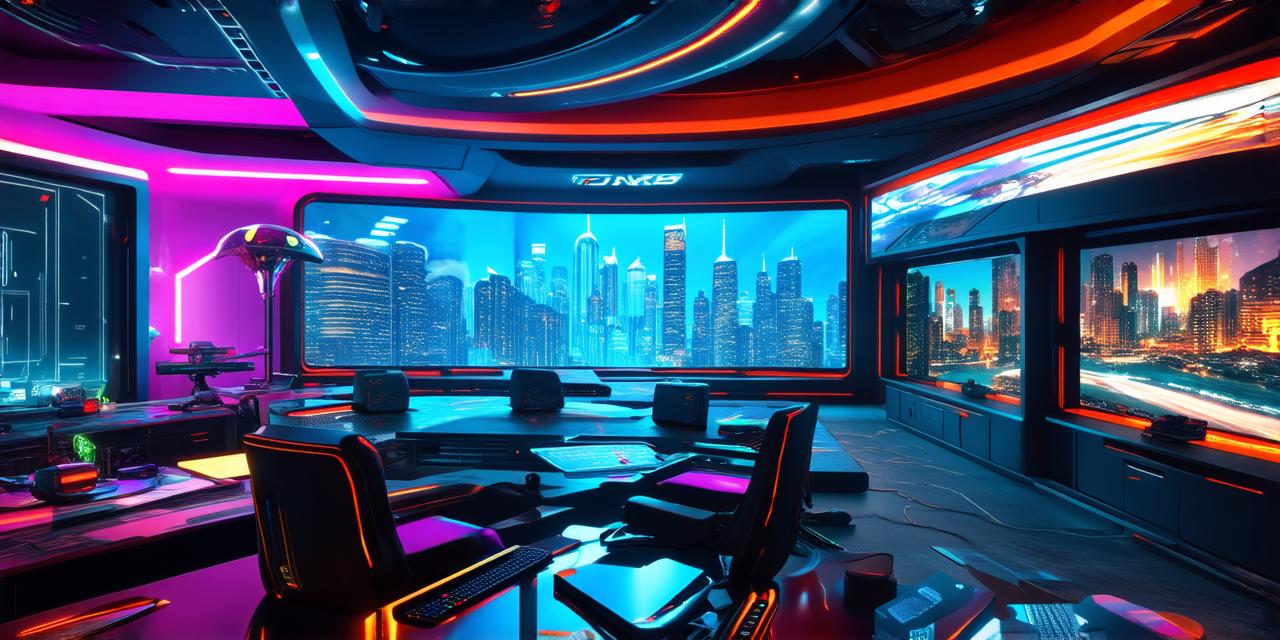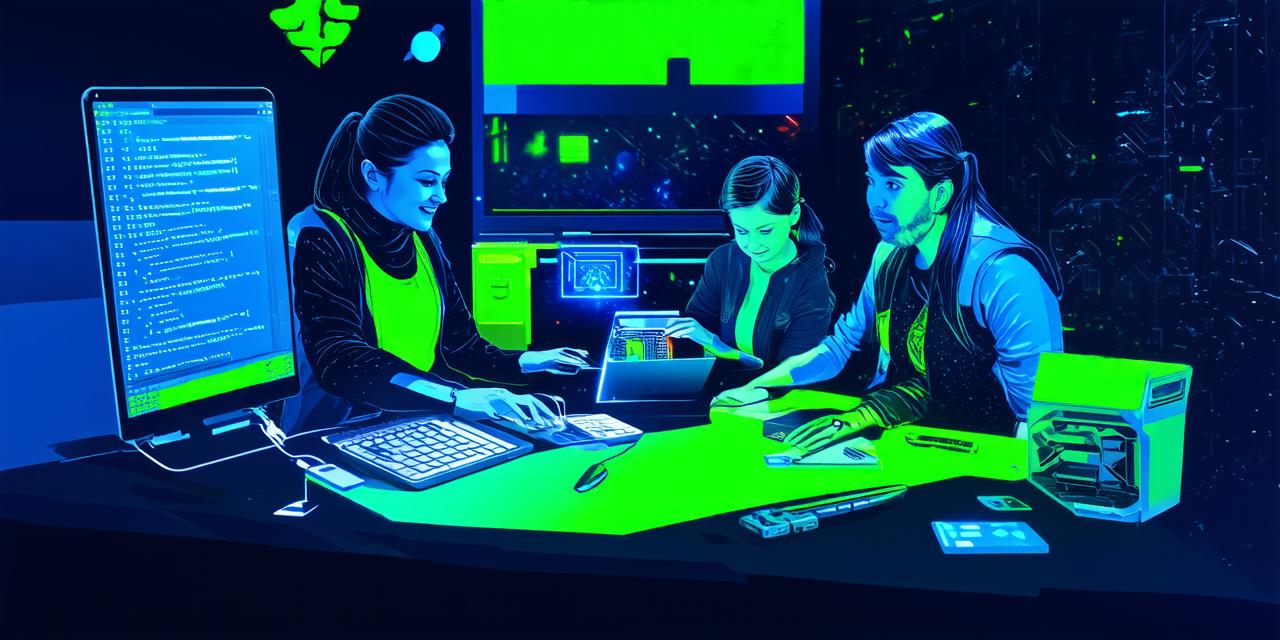Introduction:
The world of game development is rapidly expanding, and it’s no surprise that more people are considering it as a career path. Whether you’re passionate about creating immersive virtual worlds or designing challenging puzzles, there are plenty of opportunities for you to turn your passion into a profession. In this article, we will explore the various career paths in game development and provide insights on how to break into this exciting field.
1. Game Designer:
As a game designer, you’ll be responsible for creating the concept, mechanics, and overall gameplay of a game. This includes brainstorming ideas, prototyping, and testing different concepts to find what works best. A good game designer should have a strong understanding of game theory, storytelling, and design principles.
To become a game designer, you’ll need a degree in game design or related fields such as art, computer science, or psychology. You can also gain experience through internships or freelance work. Some popular game engines include Unity, Unreal Engine, and Construct 3.
1. Programmer:
Game developers often require programmers to help build the technical side of the game. As a programmer, you’ll be responsible for writing code to implement game logic, user interface, graphics, and other features. You should have strong skills in programming languages such as C++, Java, or Python, and be familiar with game engines like Unity or Unreal Engine.
To become a programmer, you’ll need a degree in computer science, information technology, or related fields. You can also gain experience through internships or freelance work. Some popular programming tools include Visual Studio, Eclipse, and Sublime Text.
1. Artist:
Game artists are responsible for creating the visuals of the game, including characters, environments, and objects. They use software such as Maya, 3D Studio Max, or Blender to create models, textures, and animations. To become an artist, you’ll need a degree in fine arts, graphic design, or animation. You can also gain experience through internships or freelance work.
1. Animator:
An animator is responsible for creating the movements of characters and objects within the game. They use software such as Maya, 3D Studio Max, or Blender to create animations and rig the characters. To become an animator, you’ll need a degree in animation or graphic design.

1. Writer:
Game writers are responsible for creating the story, dialogue, and other text content within the game. They use their writing skills to create engaging narratives that keep players invested in the game world. To become a writer, you’ll need strong writing skills and experience in creative writing or journalism. You can also gain experience through internships or freelance work.
1. Producer:
Game producers are responsible for overseeing the development of the game, including budgeting, scheduling, and coordinating the efforts of other team members. They ensure that the project stays on track and meets its goals. To become a producer, you’ll need a degree in business, marketing, or related fields, as well as experience in production management.
1. Sound Designer:
Sound designers are responsible for creating the audio elements of the game, including sound effects, music, and voiceovers. They use software such as Pro Tools, Logic Pro, or Ableton Live to create and edit audio. To become a sound designer, you’ll need strong skills in audio production and editing, as well as experience in recording and mixing sound.
1. Quality Assurance (QA) Tester:
QA testers are responsible for ensuring that the game is free from bugs and glitches. They test the game thoroughly to identify any issues and report them to the development team. To become a QA tester, you’ll need experience in testing software and a good eye for detail.
1. Game Localizer:
Game localizers are responsible for translating the game content into other languages. They work closely with the development team to ensure that the translation is accurate and culturally appropriate. To become a game localizer, you’ll need strong language skills and experience in translation.
1. UX Designer:
User Experience (UX) designers are responsible for creating an intuitive and enjoyable user interface for the game. They work closely with other team members to ensure that the game is easy to use and navigate. To become a UX designer, you’ll need experience in design and user research.
Conclusion:
Game development is a highly rewarding field that offers many career opportunities. Whether you’re interested in programming, art, writing, or any other aspect of game development, there are plenty of opportunities to turn your passion into a profession. With the right education, experience, and skills, you can become a successful game developer and contribute to creating engaging and immersive games for players around the world.




